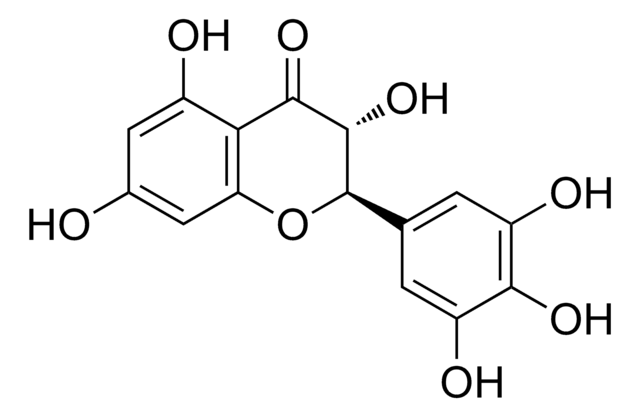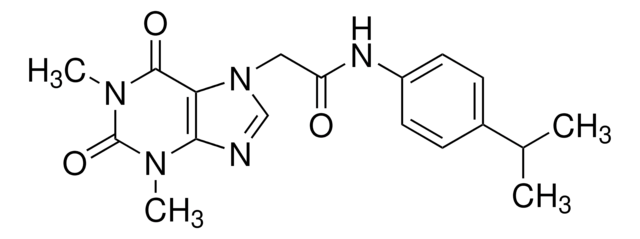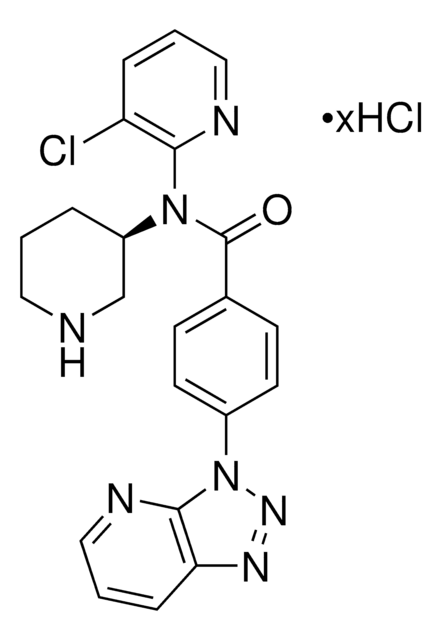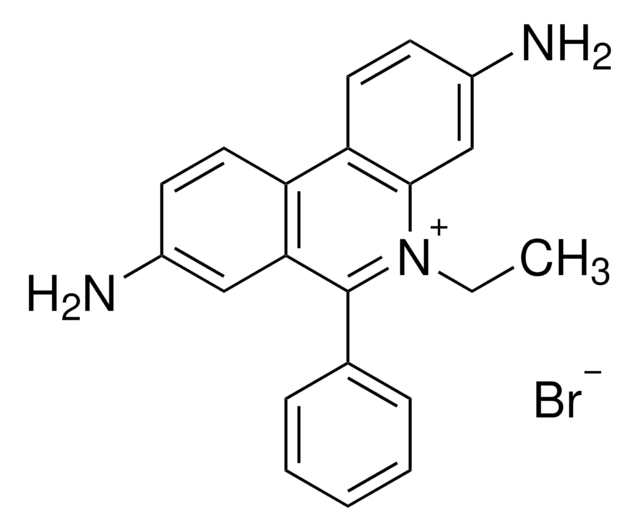SML1132
Pep2-8 trifluoroacetate salt
≥95% (HPLC), contains 58μL of solution at 10mM in DMSO
Synonym(s):
Ac-TVFTSWEEYLDWV-NH2 trifluoroacetate salt, Ac-TVFTSWEEYLDWV-amide trifluoroacetate salt, Ac-Thr-Val-Phe-Thr-Ser-Trp-Glu-Glu-Tyr-Leu-Asp-Trp-Val-NH2 trifluoroacetate salt
Sign Into View Organizational & Contract Pricing
All Photos(1)
About This Item
Empirical Formula (Hill Notation):
C83H110N16O24 · xC2HF3O2
Molecular Weight:
1715.85 (free base basis)
UNSPSC Code:
12352200
NACRES:
NA.77
Recommended Products
Assay
≥95% (HPLC)
form
solution
color
colorless to pale yellow
shipped in
wet ice
storage temp.
−20°C
Amino Acid Sequence
Ac-Thr-Val-Phe-Thr-Ser-Trp-Glu-Glu-Tyr-Leu-Asp-Trp-Val-NH2 trifluoroacetate salt
Biochem/physiol Actions
Pep2-8 is a potent PCSK9 (proprotein convertase subtilisin/kexin type 9) inhibitor that selectively binds to PCSK9 and interferes with LDL receptor binding to PCSK9. Pep2-8 restores LDL receptor function and LDL uptake of PCSK9-treated HepG2 cells.
Pep2-8, a good mimic of epidermal growth factor precursor homology domain A (EGF-A), serves as a competitive inhibitor of low-density lipoprotein (LDL) receptor binding. It can be used as an anchor peptide in phage-display experiments to bind an extension peptide library to the groove site.
Storage Class Code
11 - Combustible Solids
WGK
WGK 3
Flash Point(F)
Not applicable
Flash Point(C)
Not applicable
Certificates of Analysis (COA)
Search for Certificates of Analysis (COA) by entering the products Lot/Batch Number. Lot and Batch Numbers can be found on a product’s label following the words ‘Lot’ or ‘Batch’.
Already Own This Product?
Find documentation for the products that you have recently purchased in the Document Library.
Yingnan Zhang et al.
Nature structural & molecular biology, 24(10), 848-856 (2017-08-22)
Proprotein convertase subtilisin/kexin type 9 (PCSK9) regulates plasma LDL cholesterol (LDL-c) levels by promoting the degradation of liver LDL receptors (LDLRs). Antibodies that inhibit PCSK9 binding to the EGF(A) domain of the LDLR are effective in lowering LDL-c. However, the
Our team of scientists has experience in all areas of research including Life Science, Material Science, Chemical Synthesis, Chromatography, Analytical and many others.
Contact Technical Service







